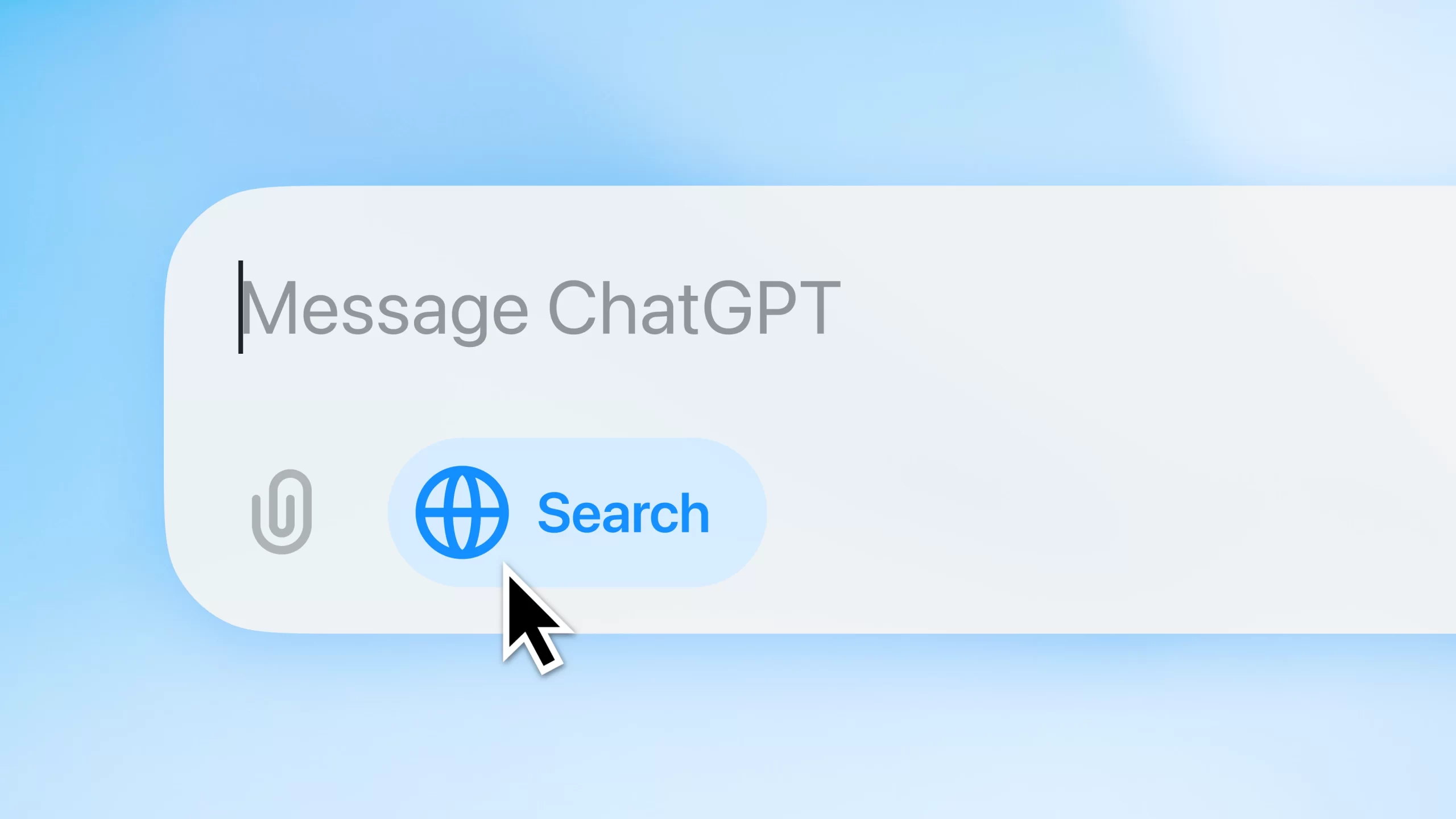In an increasingly competitive AI landscape, OpenAI unveiled a powerful web search integration within ChatGPT on Thursday October 31, allowing users real-time access to the latest information. This new feature is available for paid subscribers, with free, enterprise, and education users gaining access in the upcoming weeks.
Rather than launching as a separate product, OpenAI has seamlessly integrated the search capability into ChatGPT’s existing interface, finally closing a competitive gap that rivals Microsoft’s Copilot and Google Gemini, which have long offered real-time internet access.
Read also: Unpacking Apple’s upcoming Mac releases and new AI features
Seamless integration and user accessibility of ChatGPT search engine
The new web search feature allows ChatGPT to pull real-time web data based on queries. The feature is designed to be intuitive, automatically determining when a query requires web results while enabling users to trigger searches manually. This approach enables users to access up-to-date information without the distraction of switching platforms.
OpenAI’s search lead, Adam Fry, showcased the capabilities of this integration during a pre-launch demo. In one instance, a query on Apple’s stock price returned a range of interactive elements, including stock graphs, upcoming earnings details, and clickable news articles with citations.
Another example demonstrated a search for Italian restaurants in San Francisco, showing an interactive map with pins on recommended locations. Follow-up questions refined these results, showcasing ChatGPT’s ability to offer a conversational and responsive search experience.
ChatGPT’s search engine competitive positioning
The search capability is available across all ChatGPT platforms, including iOS, Android, and desktop apps for macOS and Windows. Built using a combination of search technologies, the feature leverages Microsoft’s Bing, among other components. According to Fry, OpenAI fine-tuned the underlying search model using a refined version of GPT-4, initially rolled out as a prototype called SearchGPT to 10,000 test users in July.
Before this integration, ChatGPT’s knowledge was limited to a cutoff date between 2021 and 2023, depending on the model used. Even with real-time search now active, OpenAI spokesperson Niko Felix assures users that the company will periodically refresh its training data to maintain its competitive edge.
However, he clarified that live search and training data refreshes are separate processes, ensuring that users always have access to the most recent advancements without compromising the foundational knowledge of the model.
Read also: Perplexity pushes back against media criticism in copyright lawsuit
Minimal advertising and focused user experience
While many search engines already exist, ChatGPT’s web search operates with the primary goal of searching and presenting the users with a clean, ad-free interface, something that the users of Google Search might find refreshing: ng; no ads-promoted results.
Mr Fry also stated that, as of now, OpenAI has had “no intentions to” allow advertisements in ChatGPT search. Still, the cost feasibility of this model is ambiguous, in that AI-enhanced search tends to be costlier to run than a standard search engine. For this purpose, OpenAI will probably set restrictive access quotas for users on the free plan.
Expanding AI’s reach and enhancing user experience
As with the web search feature, OpenAI made ChatGPT more competitive and added new user and application interaction possibilities. This launch is a big step in OpenAI’s further development of a new search process approach that would provide users with a personalised, engaging and credible source of information.
As real-time search technology advances, ChatGPT’s innovation positions it to prioritise user satisfaction while remaining relevant and dominant among rival AI models.




